Seeing an orange sky is a wonderful experience when it’s the result of a stunning sunrise or sunset. But unfortunately, for residents of New York and various other cities on the East Coast of the United States, orange skies have turned into an absolute nightmare.
Over the past 6 weeks, Canada has been battling devastating wildfires that have ripped through more than 3.3 million hectares of land. And while they struggle to get the fires under control, smoke is spreading rapidly down the coast and turning the air quality hazardous in many cities.
While Canada is on track to have its most destructive wildfire season in history, the impacts are being seen farther south as well
Image credits: MeghanDanahey
Image credits: KarliBonnita
Cities on the East Coast of the US have watched their air turn into a hazardous orange haze, due to smoke from the wildfires
Image credits: mariyanyc
Image credits: brianpia
New York City has been hit the worst, so residents have been sharing harrowing images of their seemingly apocalyptic sky
Image credits: boston25
Image credits: JasminMarilena
Image credits: MandyAntoniacci
Image credits: LuvinThatTae
The city became increasingly orange throughout the day on June 7, 2023, causing New Yorkers to become increasingly concerned
Image credits: Breaking_4_News
Image credits: melbakurman
Image credits: EmpireStateBldg
They are now being urged to stay indoors, close doors and windows and use air purifiers
Image credits: FritzBacon
Image credits: brightlightx2
Image credits: PICKaSAURUS007
Image credits: PeterTedeschi
Canada has always had a wildfire season from May to October, but this level of devastation and pollution is unprecedented
Image credits: JesseRodriguez
Image credits: CallmePuzzle
Image credits: StormTeam4NY
Image credits: weatherchannel
Image credits: Laurie_Garrett
Officials report that increased temperatures and droughts, caused by climate change, have led to this year’s uncontrollable fires
Image credits: gooblythe
Image credits: BirdCentralPark
Canada’s wildfire season spans from May through October, but CBS News reports that destruction at this scale, this early on in the season, is unprecedented. Sadly, yet unsurprisingly, climate change has impacted how harmful wildfire season can be. Canada recently experienced the nation’s hottest day on record, reaching 49.6 degrees Celsius, or 121 degrees Fahrenheit, in Lytton, British Columbia. Fires are now blazing through the Canadian prairies of Alberta, Saskatchewan and Manitoba, where high temperatures and little to no rain have put the areas at a greater risk this season. The Canadian Wildland Fire Information System has reported that the damage caused by these fires so early in the season is already 13 times worse than the nation’s 10-year average.
It’s impossible to say exactly how all of these fires started, but experts note that dry, hot seasons are prone to having more lightning than usual. Typically, about half of Canada’s wildfires are started by lightning, while the other half are caused by humans. It has been confirmed that the fires in Quebec began with lightning this year, but officials have not determined the cause of fires started in Alberta. Other fires throughout the country have been linked to human causes, such as throwing cigarette butts out windows and camping fires. Canada is doing everything they can to get these fires under control as quickly as possible, but it won’t be an easy feat. The nation is at “national preparedness level 5,” meaning they’ve committed as many national resources as possible to fight the fires, and the US has sent hundreds of firefighters, support personnel and equipment to help aid Canada.
Now, New York’s air quality has become the worst of any city on the planet, surpassing Delhi and Dubai
Image credits: nymetrowx
Image credits: nymetrowx
Image credits: EmpireStateBldg
Image credits: justicar
While Canada is working hard to quell fires, New Yorkers are simply trying to breathe
Image credits: NonAggressive-Ask
Image credits: nooneimportan7
Image credits: TheLostStonerr
Image credits: consoLe_-
While Canada struggles to bring an end to these raging fires, their neighbors down south are simply trying to breathe. New York City has been coated in an eerie orange smoke shroud due to the fires, but it’s much more dangerous than many residents initially realized. NYC has reported the worst air quality the city has ever experienced, reaching over 56 times the World Health Organization’s pollution limit. “It’s suffocating,” Rishabh Mehta, a tourist from India visiting NYC, told The New York Times. “We can’t walk long distances. If we keep walking long distances, we get tired early.” Outdoor events have been canceled, and residents have been urged to stay indoors, close windows and doors and use air purifiers.
“A healthy person may be able to withstand a day or two without too many issues, but at these levels, even they are at risk,” Dr. Purvi Parikh, an allergist and immunologist with NYU Langone Health and Allergy & Asthma Network, told CNN. “But someone who is vulnerable has much higher risk. Most vulnerable include (the) elderly, children, those with underlying lung issues like asthma, COPD, lung cancer, heart disease and pregnant women.” Wearing face masks is also recommended, but it’s important that it’s the right kind of mask. N95s, KN95s, KF94s provide the best protection, according to Linsey Marr, professor of civil and environmental engineering at Virginia Tech University.
This dangerous air quality can have devastating impacts on residents’ health
Image credits: goldengateblond
And some are highlighting the role that climate change plays in natural disasters such as this
Image credits: edgarrmcgregor
Image credits: ClassyDameFan
You can learn more about the fires and orange skies from CBS News right here
@cbseveningnews New York was among the cities with the worst air quality in the world on Wednesday as Canadian wildfires put tens of millions of Americans at risk of dangerous air quality. In some parts of the country, the air is so bad it is equivalent to smoking one cigarette an hour. #newyorkcity#wildfires#canada#airquality#healthtok♬ original sound – CBSEveningNews
Unsurprisingly, the fires and subsequent smoke have impacted residents’ lives in many different ways. Dani Harkin, a 54-year-old New Yorker, told The New York Times that the smell from the smoke has been overwhelming and triggering. “Last night, we didn’t really realize, but it smelled — it smelled like 9/11,” she shared. “Like, ‘That’s fire.’ It smelled like the day. I won’t forget that smell.” The smoke has also put a temporary end to air travel in certain cities. On Wednesday, June 7th, the Federal Aviation Administration ordered a ground stop for flights en route to LaGuardia Airport in New York, and all flights headed to Newark Liberty International Airport were delayed due to low visibility.
If you live in an area affected by these wildfires, please take extreme caution when going outside. According to the World Health Organization, approximately 4.2 million premature deaths were caused by fine particulate matter being inhaled in 2016. And as William Barrett, the national senior director of clean air advocacy with the American Lung Association, says, “If you can see or smell smoke, know that you’re being exposed.” Unfortunately, the Canadian Government says the warmer than normal temperatures will continue to put the country at high risk during this wildfire season, so it won’t be easy tackling these natural disasters. We would love to hear your thoughts on this tragic situation in the comments below, pandas, and remember to stay safe out there.
Residents and those viewing the situation unfold from around the world have shared their thoughts and concerns online
Yes, the air quality in the northeastern US is pretty bad right now, but I find it strange that BP is focused on that, rather than highlighting the actual fires in Canada. Just seems weird to me.
I searched "Wildfires in Canada". The first entry talked about air quality level in the US. Only the second entry actually focused on the Canadian wildfires. The next 3 entries again talked about the US air quality. Even search results are so US focused.
Load More Replies...We also have our military helping to fight those forest fires. We are getting help from other countries besides the US.
Load More Replies...I’m in Toronto and watching these stories for the past couple months have been devastating. We’re the second largest country in the world and half of us are on fire, the worst so far. Smells like BBQ here too, sky is just a weird grey. My ex and still good friend living back in Quebec says his city has ash in the air coming down. I am so sorry all of you from NY are dealing with this as well right now. But as a collective human race we seriously need to re evaluate how we treat our planet… I personally think it’s to late to reverse but perhaps we can slow it down, do SOME damage control.
Upvoting b/c I grew up on the border (US side) and for all people's talk about the US this and that? .... Yeah, climate change and so on don't care about lines on maps. It's *all of us* at risk!
Load More Replies...Yes, the air quality in the northeastern US is pretty bad right now, but I find it strange that BP is focused on that, rather than highlighting the actual fires in Canada. Just seems weird to me.
I searched "Wildfires in Canada". The first entry talked about air quality level in the US. Only the second entry actually focused on the Canadian wildfires. The next 3 entries again talked about the US air quality. Even search results are so US focused.
Load More Replies...We also have our military helping to fight those forest fires. We are getting help from other countries besides the US.
Load More Replies...I’m in Toronto and watching these stories for the past couple months have been devastating. We’re the second largest country in the world and half of us are on fire, the worst so far. Smells like BBQ here too, sky is just a weird grey. My ex and still good friend living back in Quebec says his city has ash in the air coming down. I am so sorry all of you from NY are dealing with this as well right now. But as a collective human race we seriously need to re evaluate how we treat our planet… I personally think it’s to late to reverse but perhaps we can slow it down, do SOME damage control.
Upvoting b/c I grew up on the border (US side) and for all people's talk about the US this and that? .... Yeah, climate change and so on don't care about lines on maps. It's *all of us* at risk!
Load More Replies...
 Dark Mode
Dark Mode 

 No fees, cancel anytime
No fees, cancel anytime 


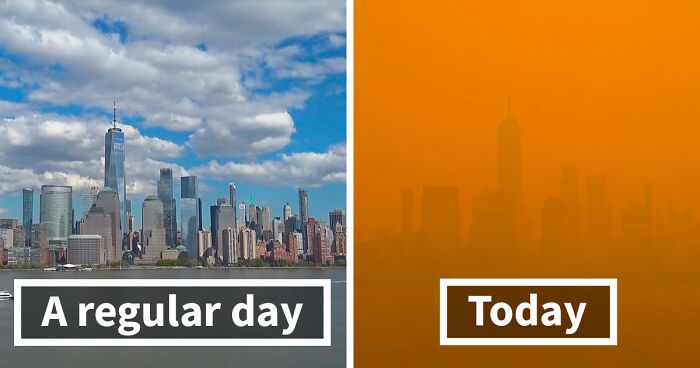
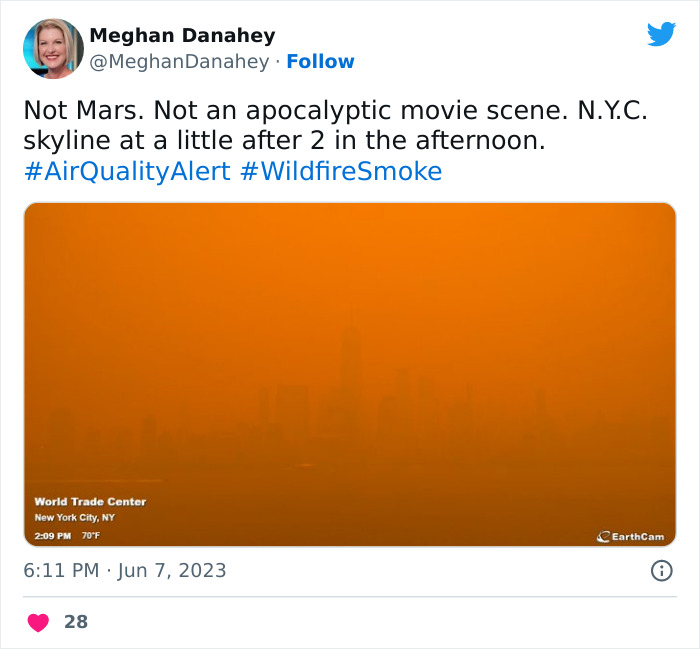
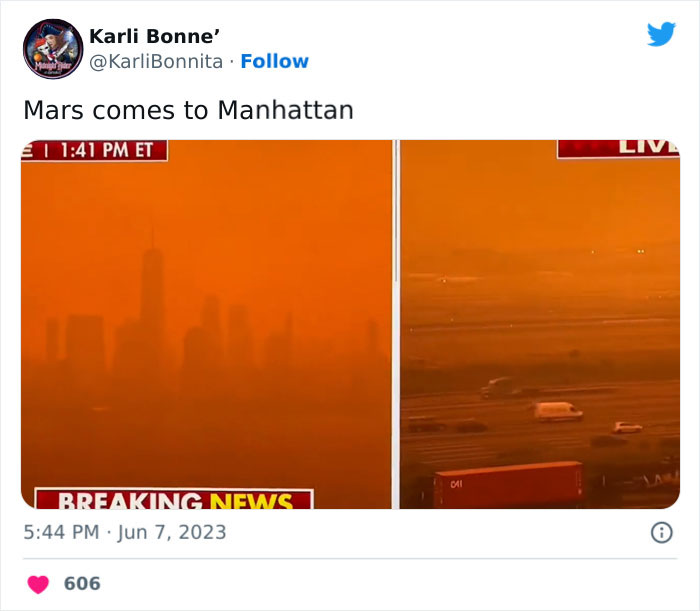
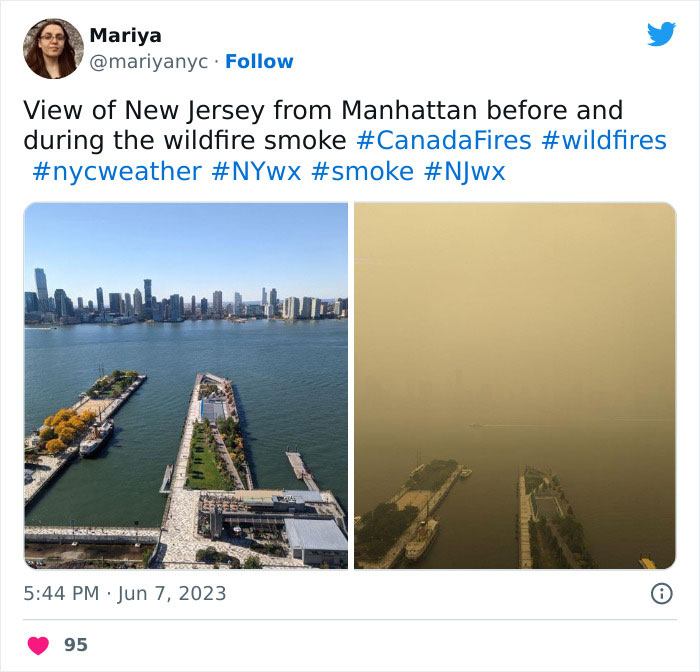
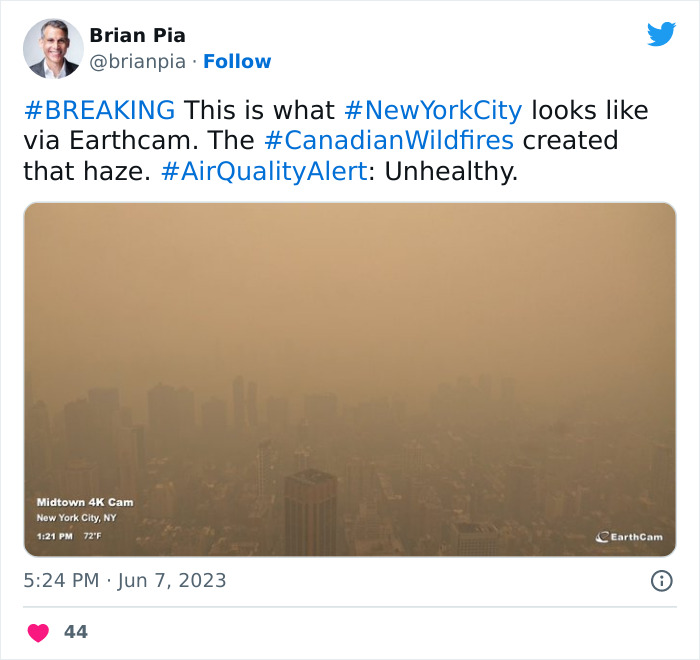
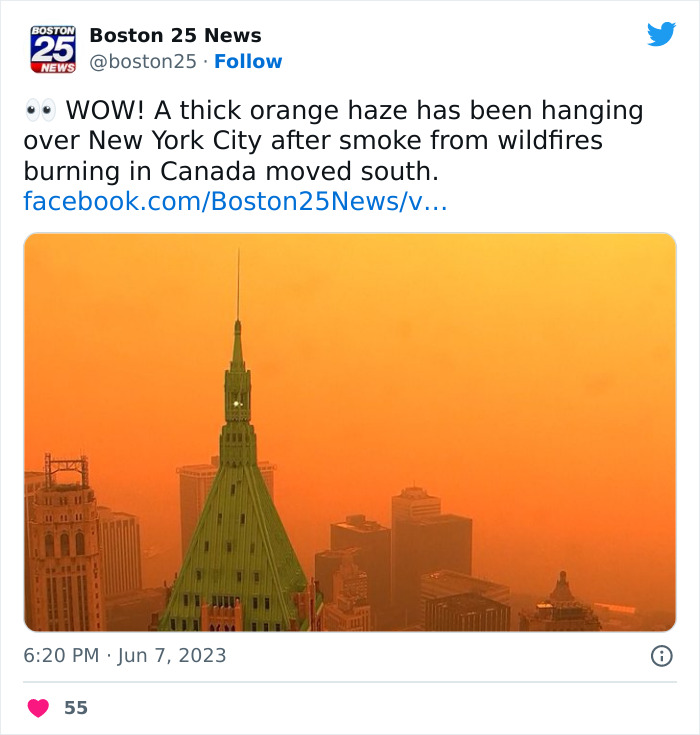
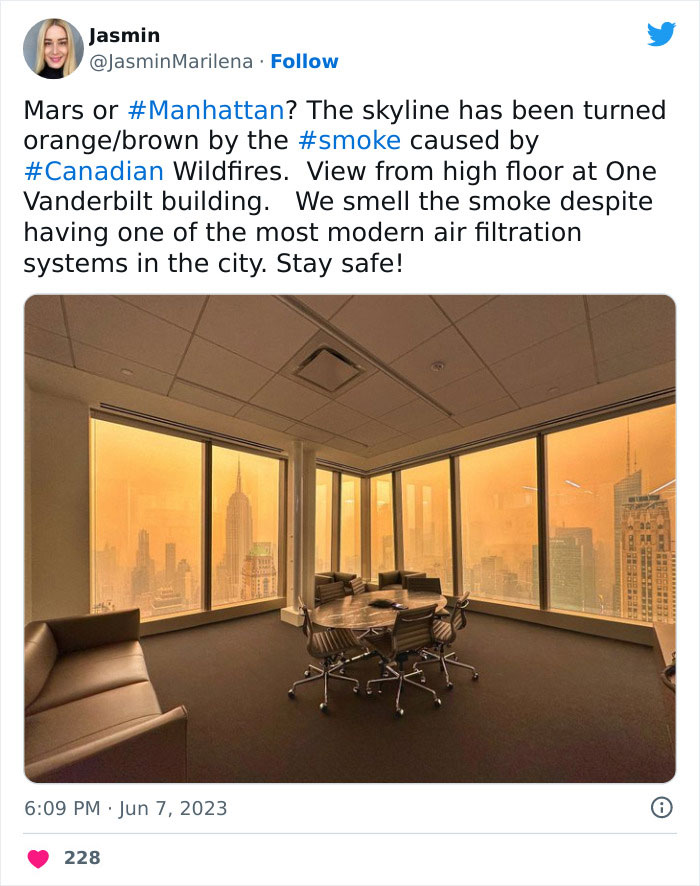
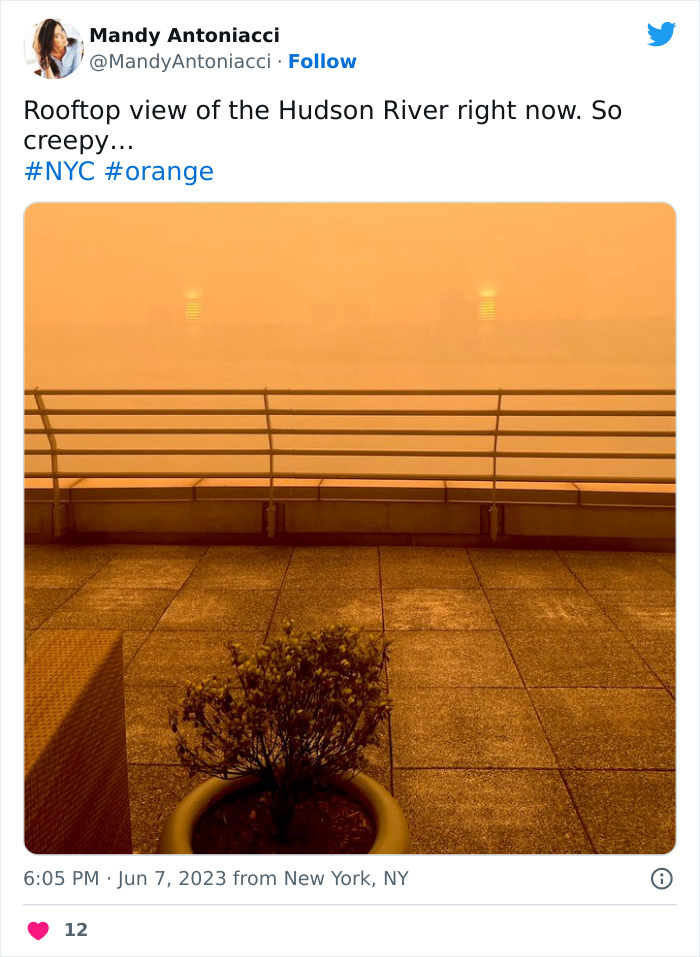
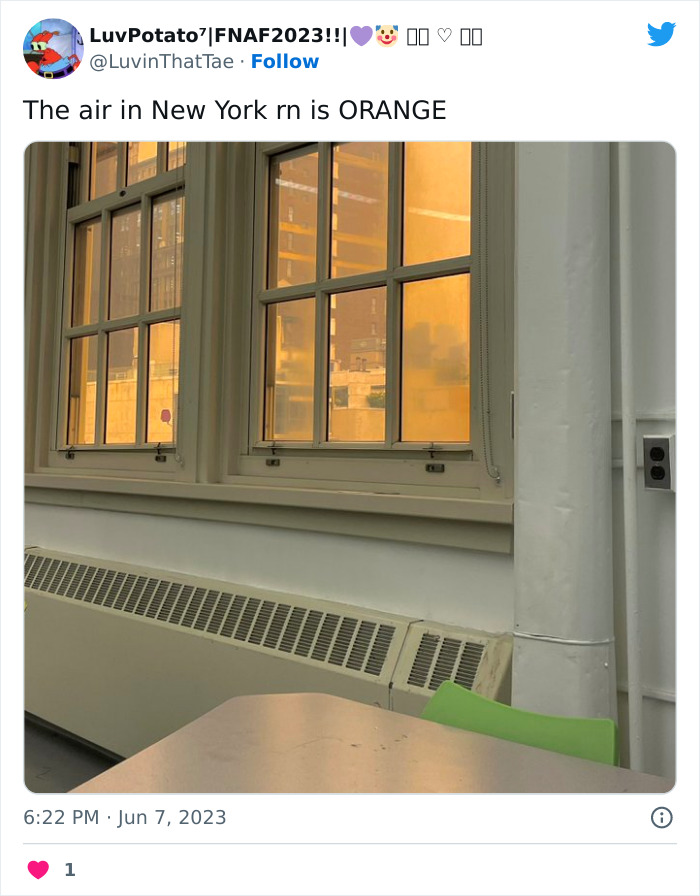
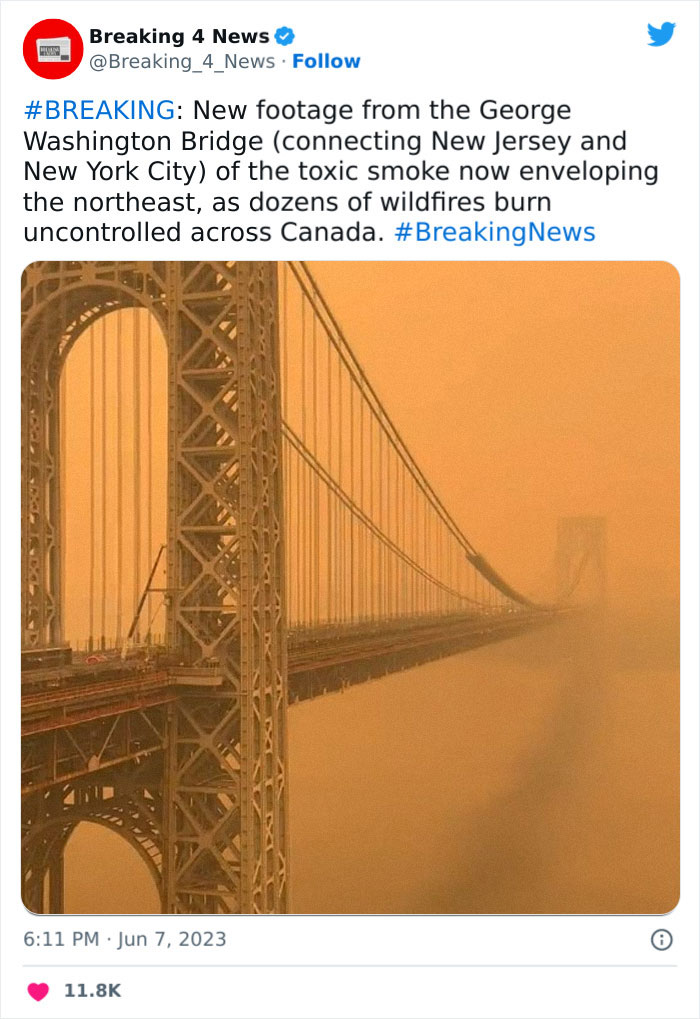
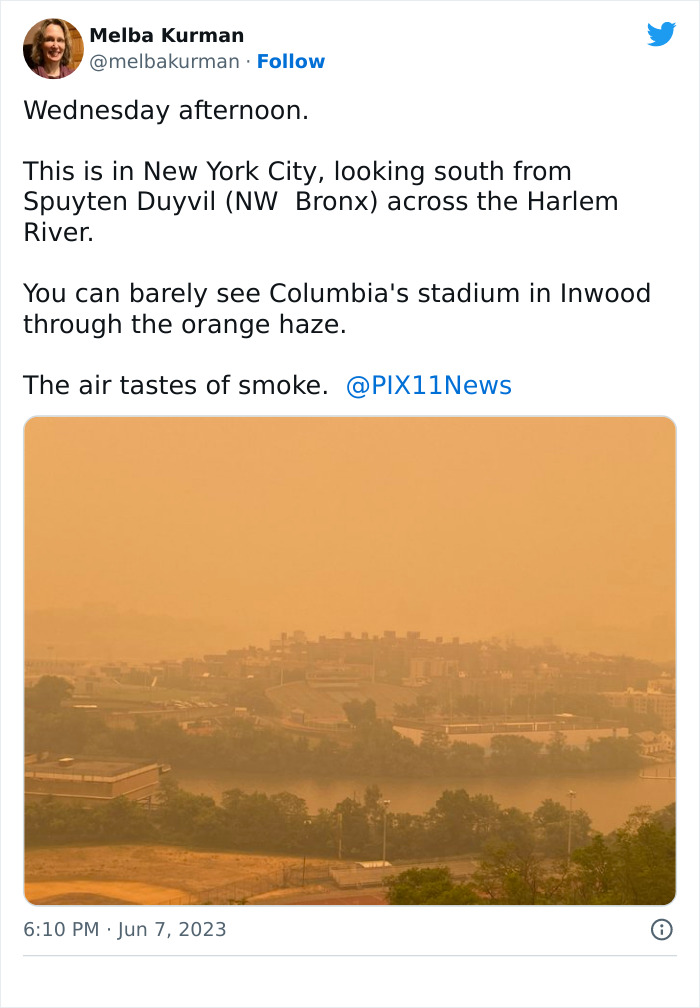
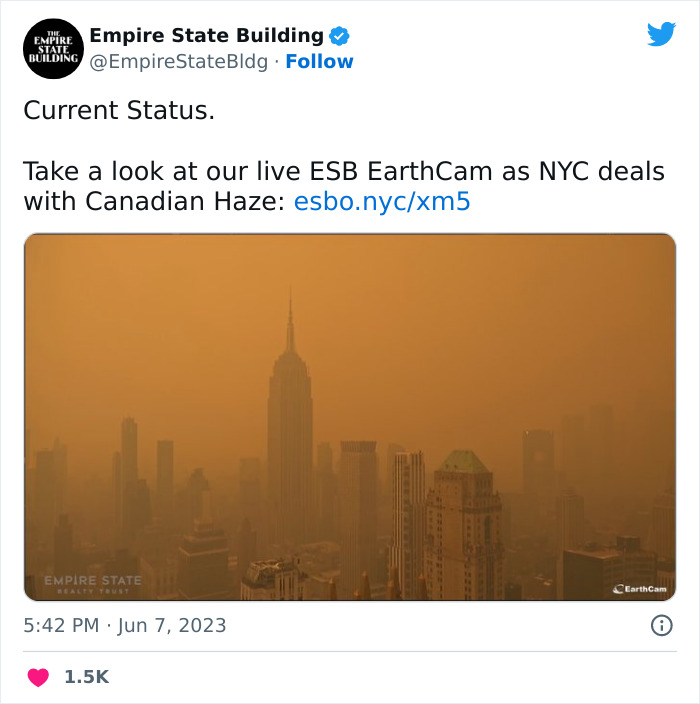
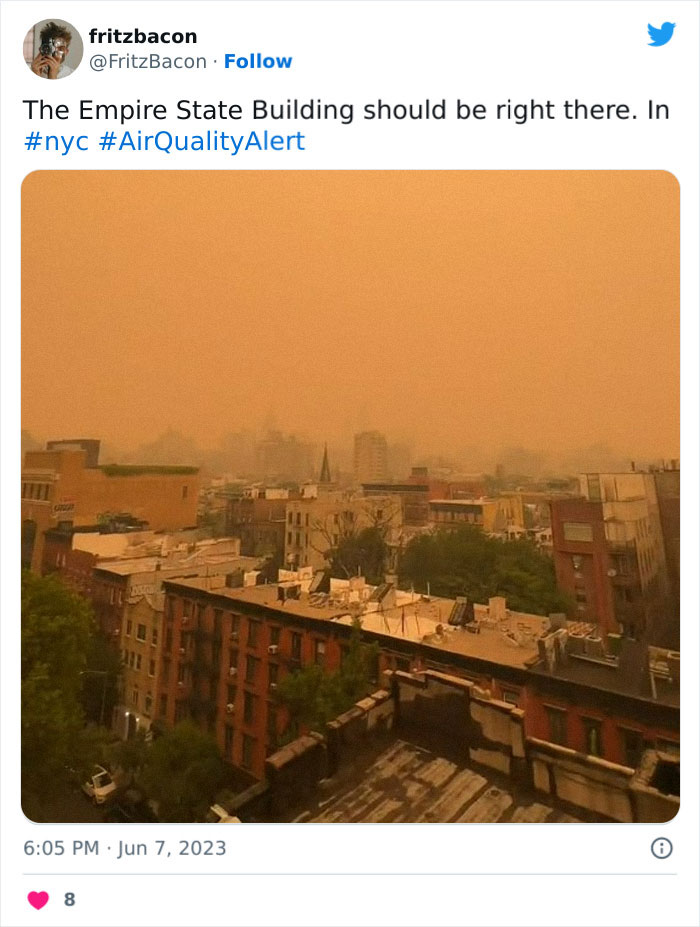
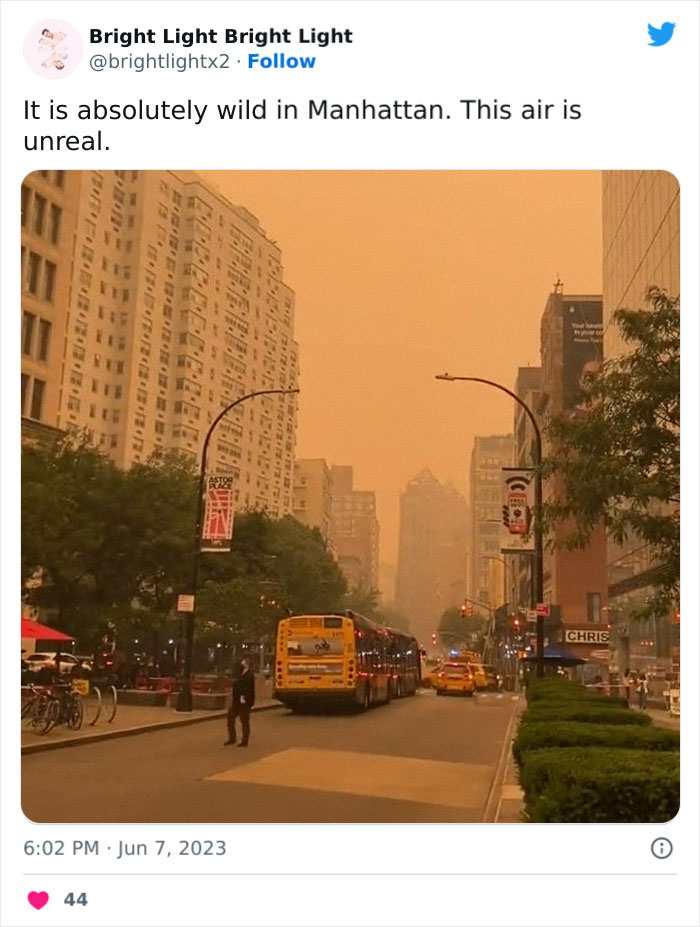
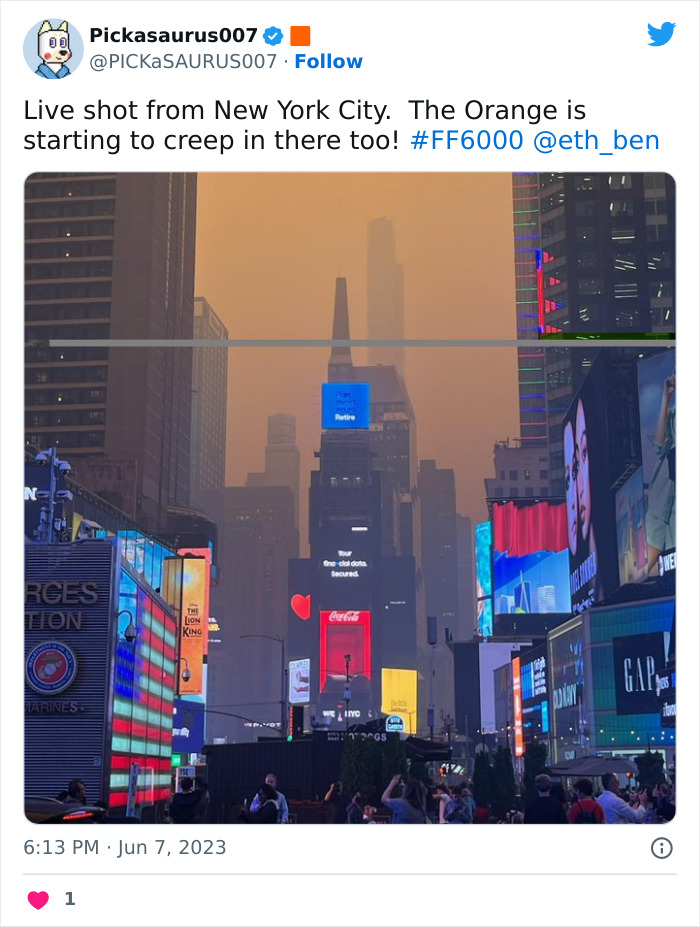
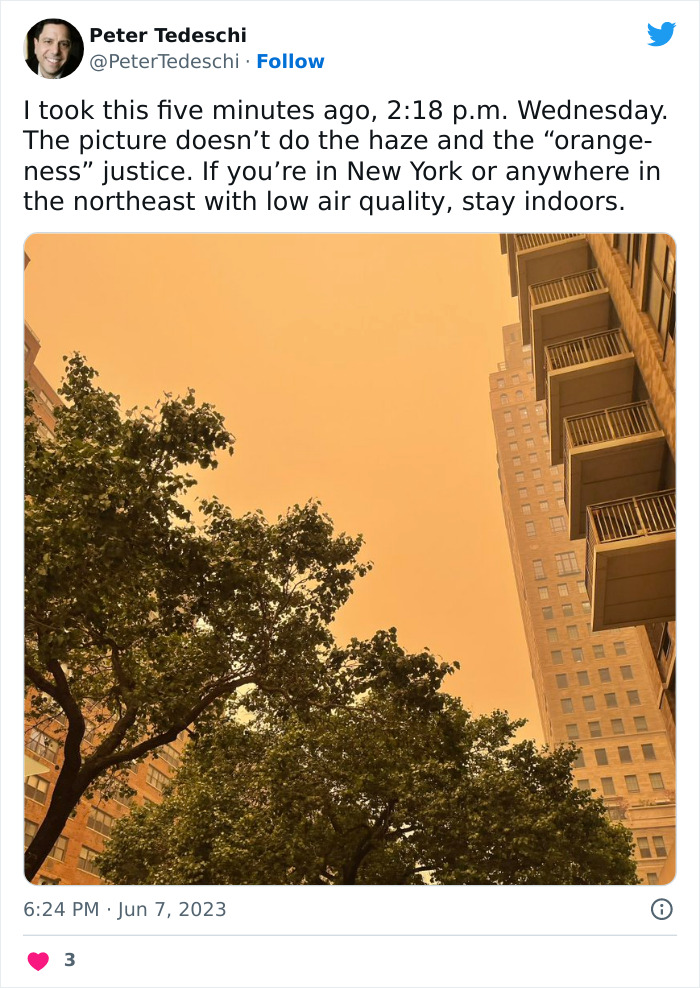
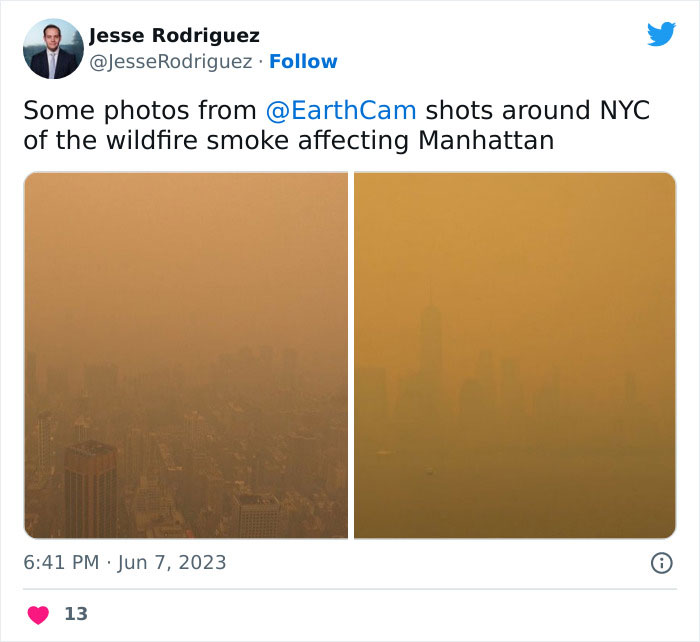
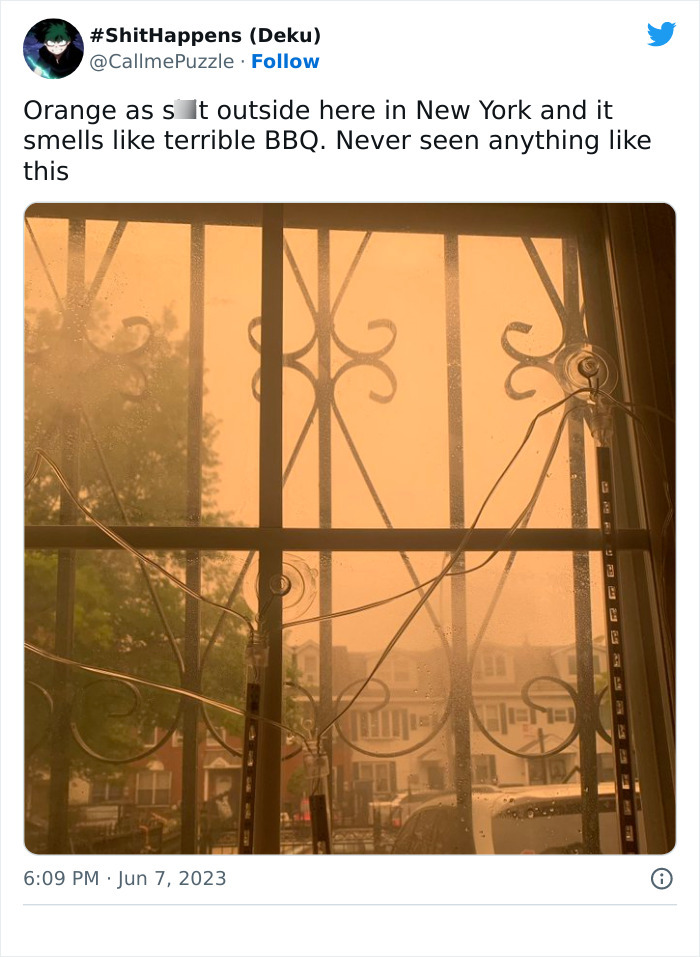
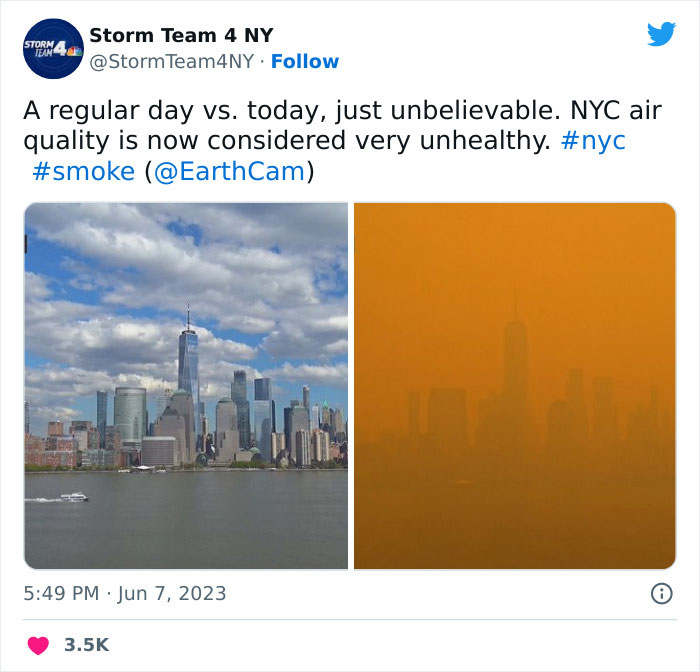
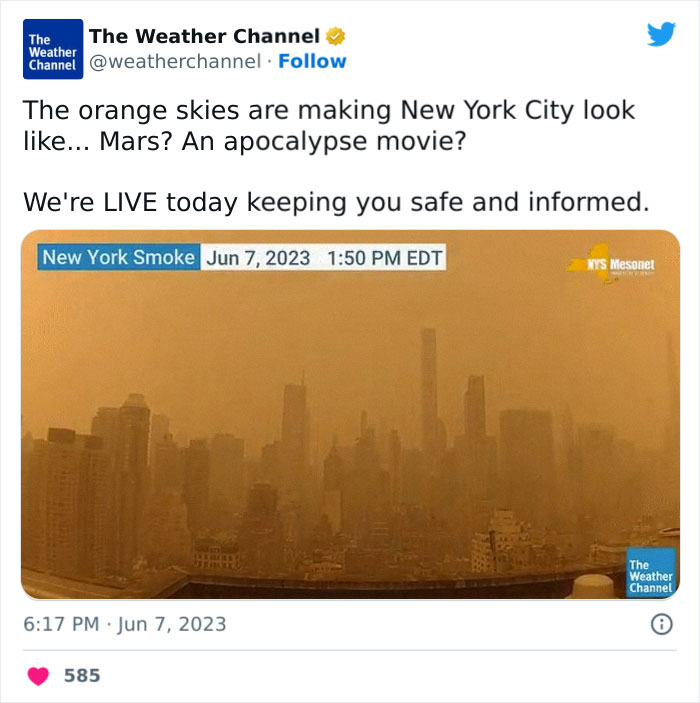
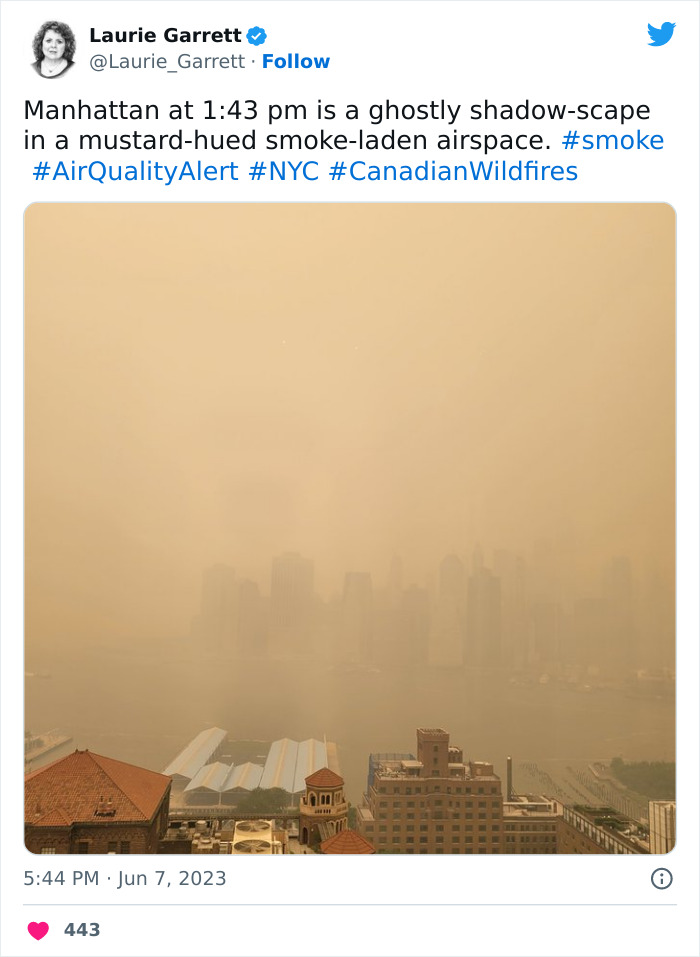
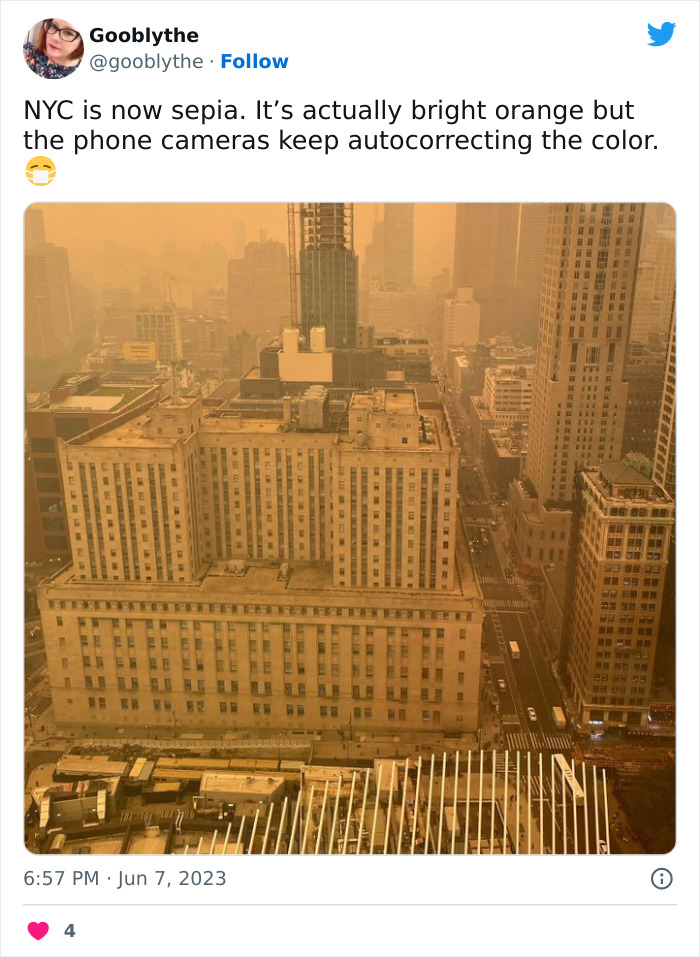
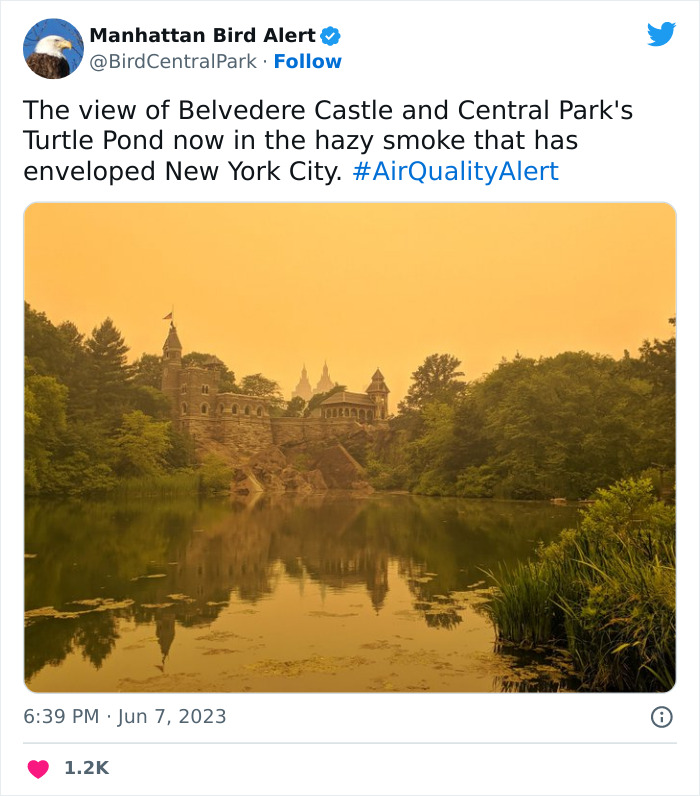
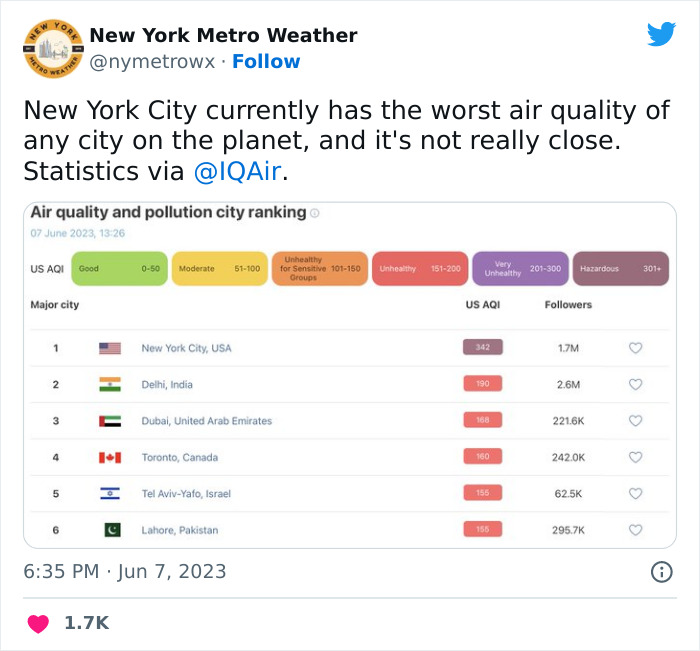
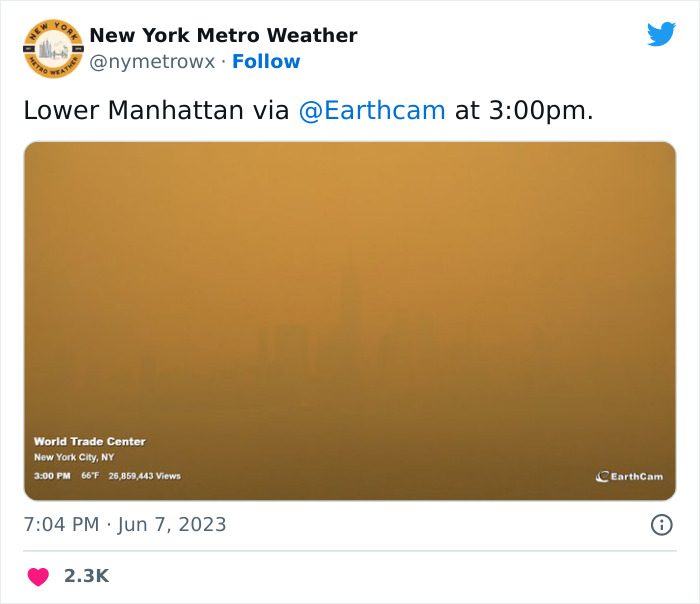
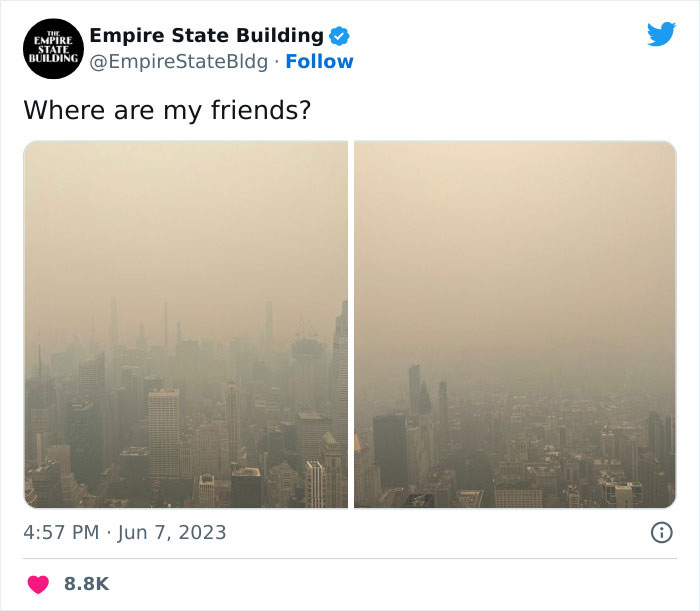
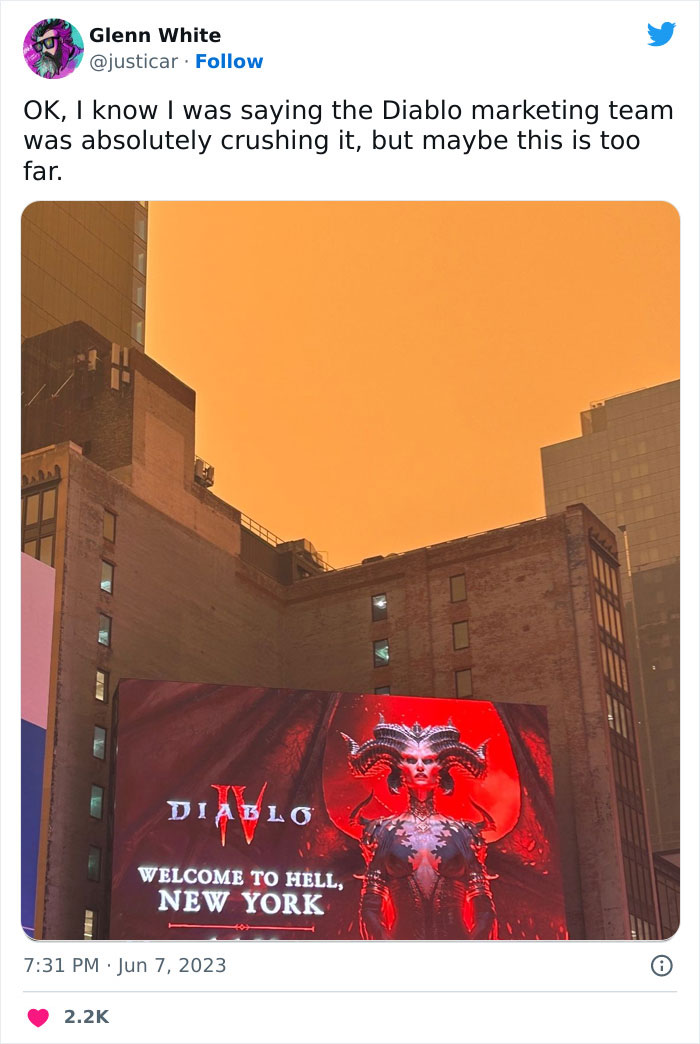
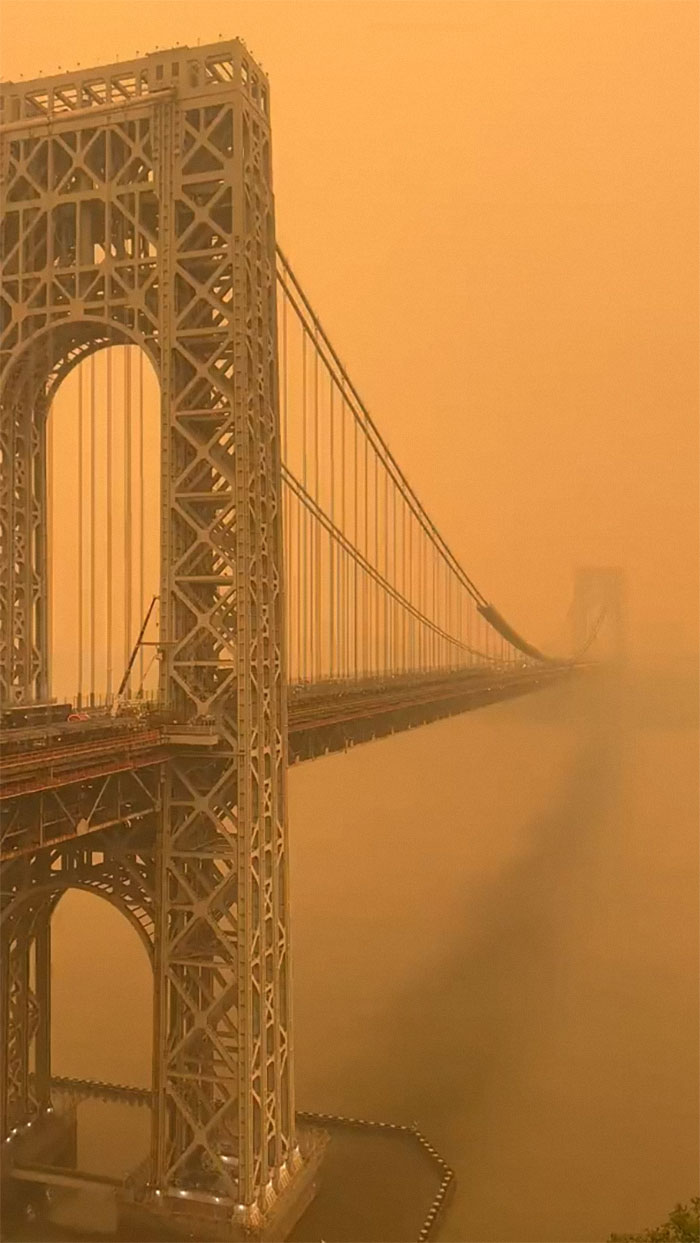
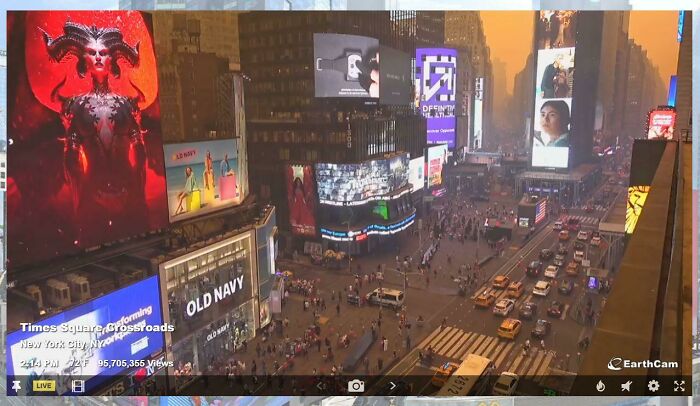
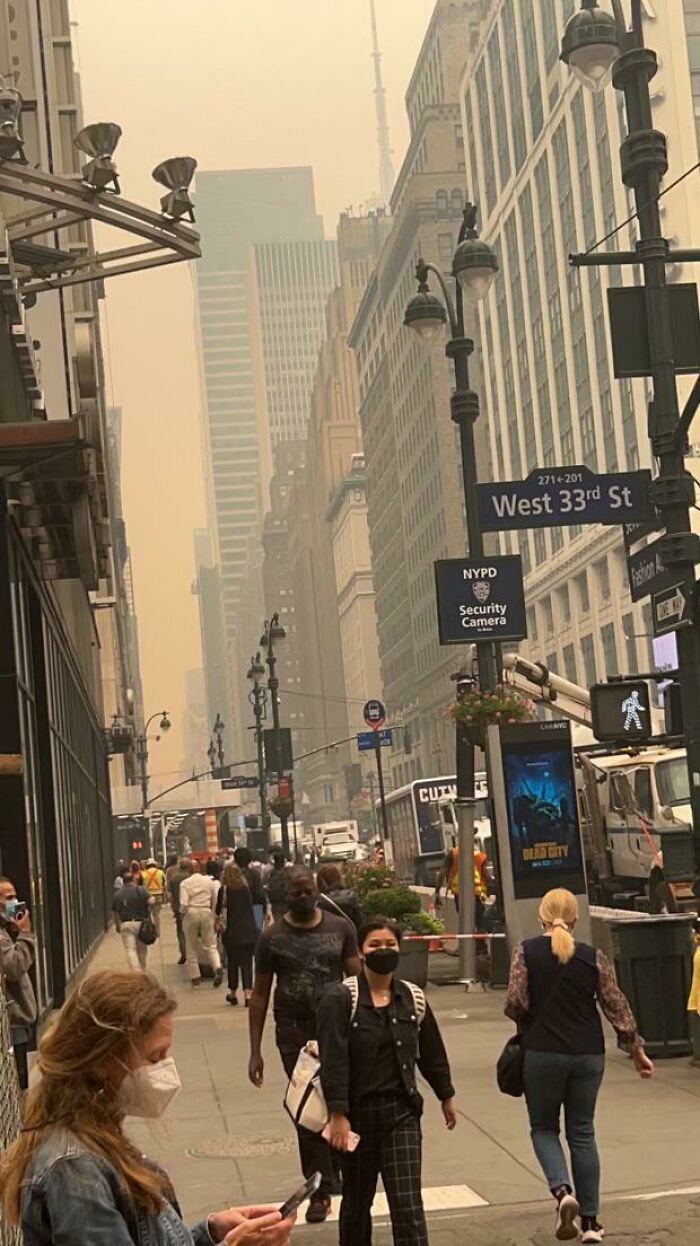
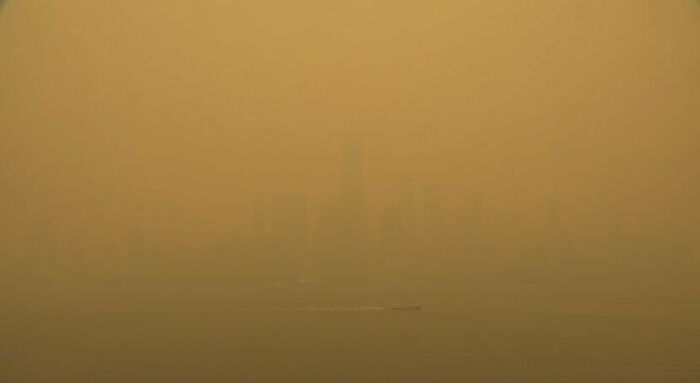
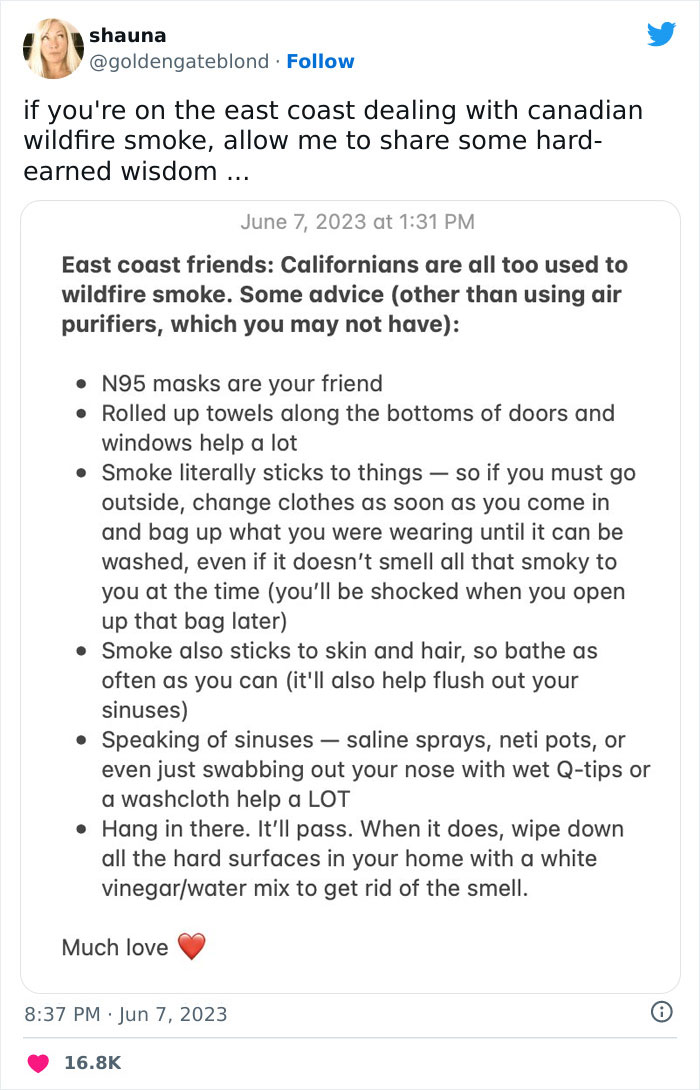
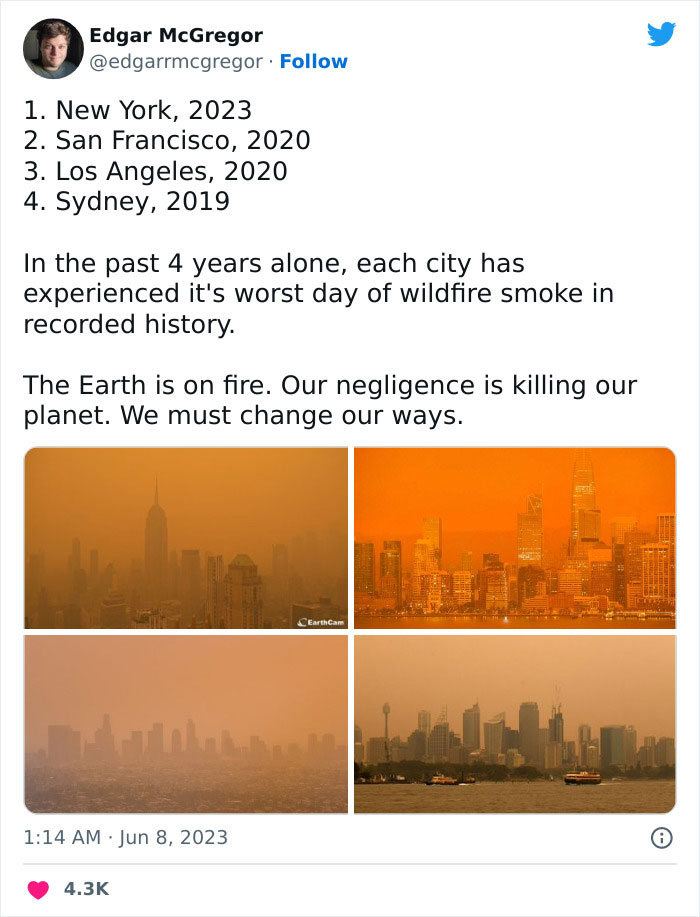
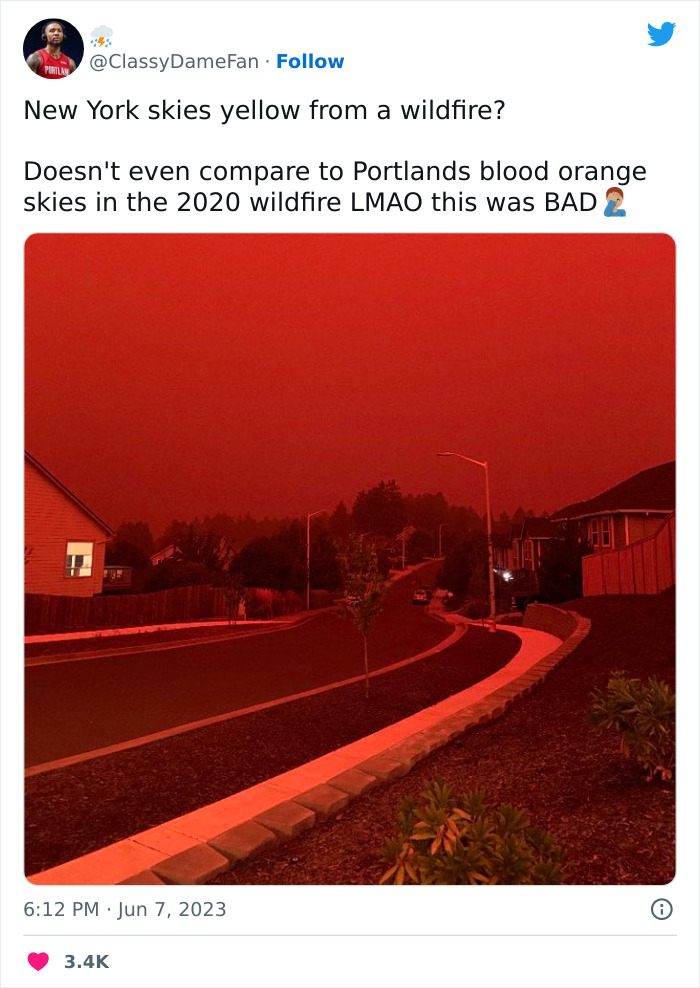

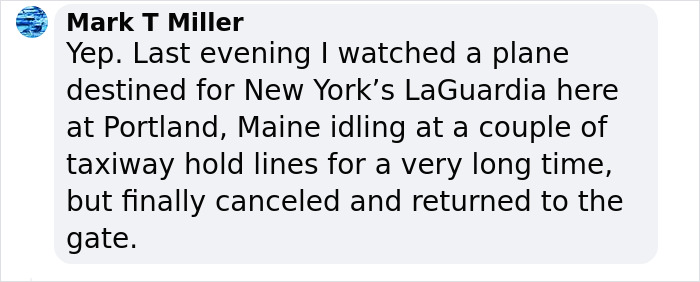















































115
81